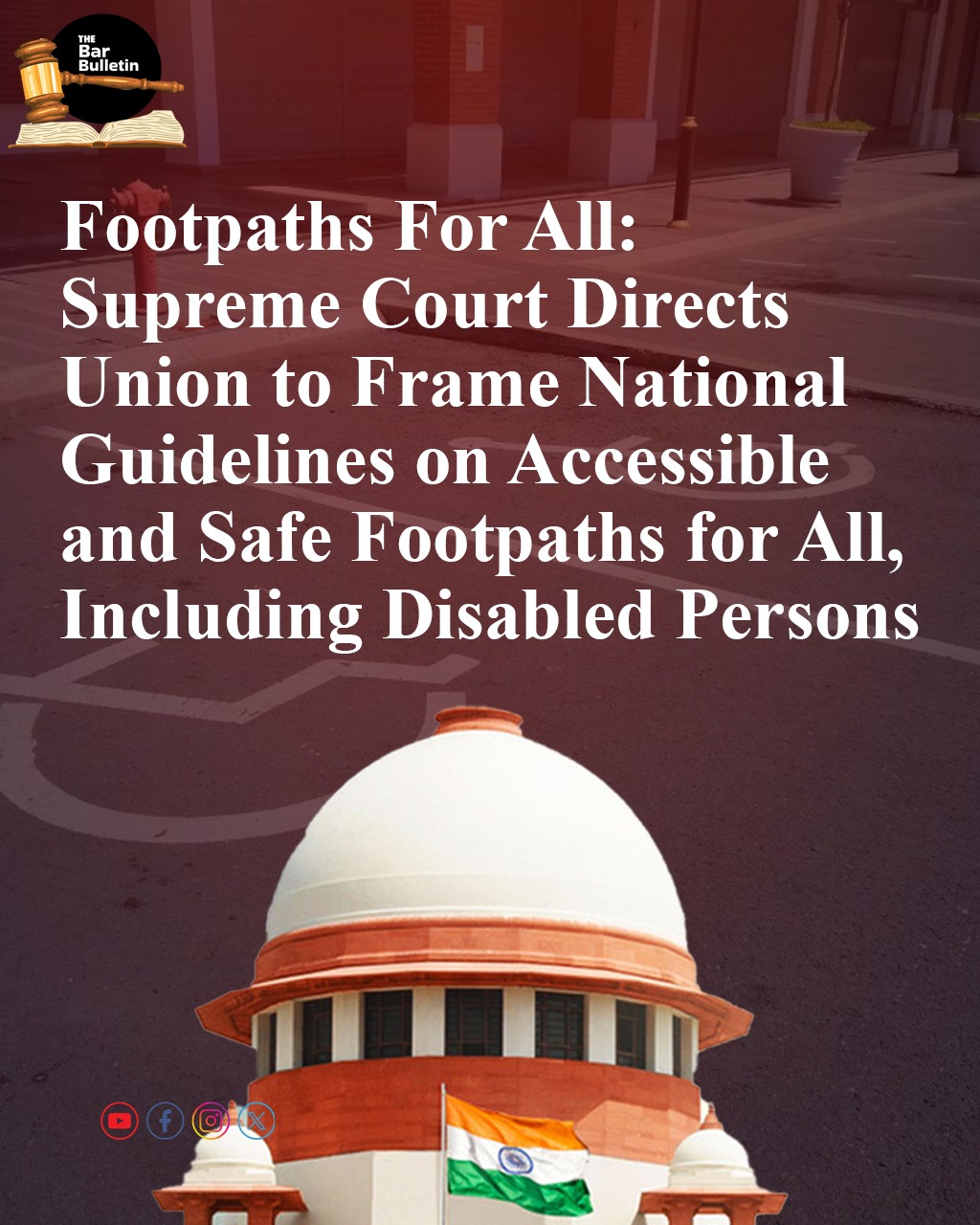The Supreme Court, hearing the long-standing PIL on road safety and pedestrian rights filed by orthopaedic surgeon Dr. S. Rajaseekaran, issued an order to the Union of India to frame comprehensive guidelines within four weeks to ensure that footpaths are accessible for persons with disabilities, and free from encroachments nationwide.
The petitioner’s continuing litigation highlights dangerous footpath conditions across India- poor or missing pavement infrastructure, rampant encroachments, and lack of barrier-free movement, especially for people with disabilities, resulting in safety risks, injuries, and denial of basic mobility rights. The central prayer sought enforceable standards for footpath construction, universal accessibility, and strict anti-encroachment enforcement under Articles 14 and 21 of the Constitution.
Previously, the Supreme Court and diverse benches have issued multiple interim directions compelling authorities to address road safety, infrastructure standards, and the specific needs of vulnerable road users. The present hearing addressed two filed applications emphasizing: firstly, the need for usable, continuous, and properly constructed footways for all pedestrians; secondly, their universal accessibility for disabled persons, and thirdly, urgent removal of encroachments blocking footpaths.
The Bench comprising Justice J.B. Pardiwala and Justice R. Mahadevan, after hearing the Amicus Curiae and the Union and State counsel, found that clear, central guidelines were lacking and necessary.
The Union of India was accordingly granted four weeks’ time to draft and submit detailed guidelines addressing the three critical issues:
a mandatory provision and technical standards for footways in new and existing roads and urban planning
b design requirements to ensure accessibility for all citizens, notably the disabled persons
c effective and ongoing mechanisms for removal and prevention of footpath encroachments
The Court also allowed State governments to either adopt the national guidelines or frame their own, but with an expectation of uniform standards. The Bench warned that, should the Union fail to act within the stipulated time, it would itself proceed, with the aid of the Amicus, to frame binding directions.
Separately, the National Highways Authority of India was permitted to file its own compliance affidavit, with instructions to ensure timely sharing of material with the Amicus. The case is scheduled for further hearing on 1 September 2025, when compliance will be reviewed.
By foregrounding the constitutional right to accessible public spaces and warning of judicial intervention, this order brings renewed urgency and clarity to pedestrian safety, universal design, and urban inclusivity.
![]()



